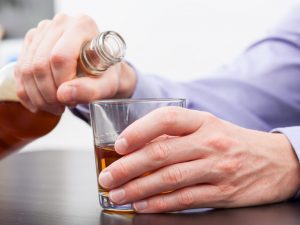Alcoholism
Alcohol addiction is a very bad habit. Alcohol consumption and addiction have serious negative effects on the individual and society. The medical definition of alcoholism is to continue drinking alcohol and not to be able to quit. It is worth noting that alcoholism is no less dangerous than drug addiction. States allocate major economic budgets to treat alcoholics, which mean that this causes a great economic burden, rather than alcohol caused by chronic physical and psychological illnesses, which need to introduce addicts into treatment centers. In this article we will mention ways to treat alcoholism.
The dangers of alcoholism
- Alcoholic Hepatitis and liver cirrhosis, which causes abdominal fluid retention and jaundice.
- Chronic pancreatitis inflammation.
- Abortion of fetuses in the case of an addicted woman pregnant.
- The incidence of alcoholic heart disease such as high blood pressure, strokes and strokes.
- It causes osteoporosis and stroke.
- Lack of blood flow to the brain and impotence.
- Deep psychological damage such as anxiety, stress, intense nervousness and isolation from society.
Treatment of alcoholism

The treatment of alcoholism goes through several steps and aims to minimize the symptoms of alcohol withdrawal from the body, which include headaches, excessive sweating, nausea, anxiety, tiredness, insomnia, diarrhea, stomach pain, and accelerated heart rate. The most important methods of treatment include:
- First, the addict must agree to undergo addiction treatment, have the real desire to do so, and provide the right will and intention to get rid of addiction.
- Provide family and psychological support and friends support to encourage the addict to quit addiction.
- Starting with the basic steps, the first is “Detox”, a medical system that the doctor puts the addict to rid the body of toxins, and helps to alleviate the symptoms of withdrawal from addiction, and prepare the body properly to accept treatment.
- Take some medications that reduce anxiety and depression so that they are under the supervision of a specialist doctor.
- To subject the addict to rehabilitation program such as counseling and awareness, and to urge him to commit himself to taking medications and to strengthen his ability to overcome the addiction.
- Protect the addict from any relapse. This needs to strengthen the patient’s desire to get rid of addiction, to be fully committed to the medicines prescribed by the doctors, and to continue the psychological support of friends and family.
- Avoid going back to drinking alcohol for whatever reasons, even if the alcohol content is low, because this causes poor treatment and a relapse. Therefore, internal insistence is the most important step in leaving addiction